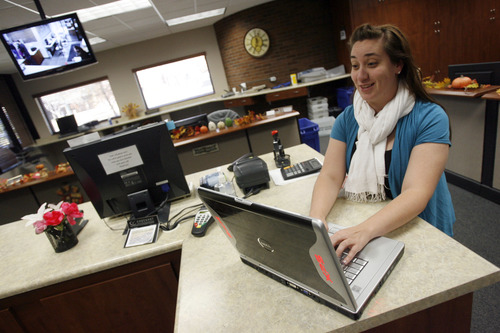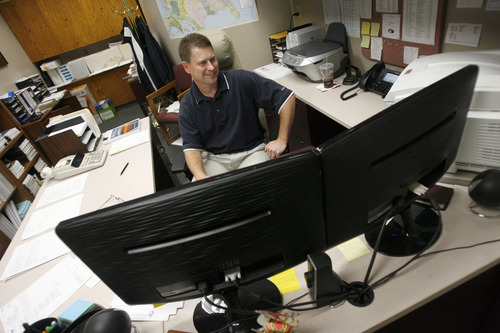This is an archived article that was published on sltrib.com in 2012, and information in the article may be outdated. It is provided only for personal research purposes and may not be reprinted.
Are consumers willing to pay higher taxes to finance UTOPIA?
In Orem, the answer apparently is no.
When the city fell short in paying its $2.8 million UTOPIA bill for 2013, the Orem City Council in June proposed a 50 percent property tax increase to make up for the gap. The owner of a $184,500 home would have paid $97 more a year under the plan — the first hike of its kind in the city in nearly three decades.
Residents rebelled in heated public hearings. The council eventually relented after more than 5,000 signed a petition to require a public vote on the proposed increase. Orem now plans to make other cuts to pay for UTOPIA, potentially from vital services such as police or fire protection. But even that will not cure the problems, one Orem councilman points out.
"What [the council] did not tell the people is this would only last for about four years before they would come back and ask for more," Councilman Hans Andersen said.
UTOPIA has its ardent supporters in Orem, the second largest of 11 Utah cities backing the open-access fiber-optic network. The city has nearly 3,000 subscribers, and the grid is about 41 percent built out in the city.
Subscriber Ace Sorensen uses its scorching Internet speeds to run a small public-finance business out of his home. He says he loves it.
"It blows the socks off Comcast," Sorensen said.
But others in this Utah County community of 90,700 are increasingly wary of the project's implications for city coffers. Orem is legally obligated for up to a $103 million share of UTOPIA's bond payments, in gradually increasing annual installments due through 2040.
A powerful state senator from Orem, Republican John Valentine, is now among legislators calling for reforms to UTOPIA's budget standards, after an August audit brought to light that the agency was using newly borrowed construction funds to pay old debts and run operations.
Valentine has heard his share of complaints about UTOPIA. The tax attorney likened its financial practices to using a credit card to pay off a mortgage.
"The state feels very concerned when the cities get in the kind of trouble that UTOPIA caused," he said.
Resident Wayne Burr, who led the anti-tax-increase petition drive, said most Orem residents have no hope of getting UTOPIA's services but are paying for them anyway. He called the network "a black hole to dump money into."
"The government shouldn't be into providing services that free enterprise can do very well," Burr said.
Twitter: @CimCity





